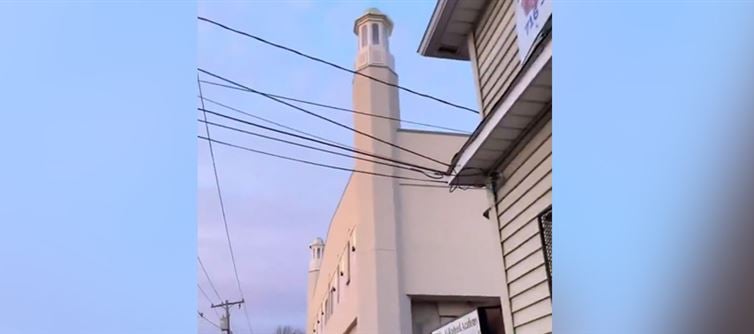
 A Mosque In New York Blast Islamic Calls To Prayer 5 Times A Day - America Turning Out To Be Europe?
A Mosque In New York Blast Islamic Calls To Prayer 5 Times A Day - America Turning Out To Be Europe?

In a growing trend reflecting the expanding visibility of Islamic practices in Western cities, a mosque in New York has begun broadcasting the Islamic call to prayer (Adhan) over loudspeakers five times a day, including the earliest one at around 5 a.m. While the practice holds deep religious significance for Muslims, signaling the times for prayer, it has stirred mixed reactions among local residents. Some members of the surrounding community, particularly those not of the Islamic faith, have expressed frustration over the volume and timing, especially the early morning call that many feel disrupts their sleep and daily routine.
This development mirrors similar debates that have played out across various cities in europe over the past decade, where public Adhan broadcasts have sparked controversy in countries like Sweden, Germany, and the Netherlands. In some areas, local governments have imposed restrictions on volume or timing, attempting to strike a balance between religious freedom and community standards. In the case of New York, where freedom of religion is constitutionally protected, the mosque is legally allowed to broadcast the prayer within city noise ordinances, but the situation still underscores the growing cultural friction that can arise when religious expression enters shared public spaces.
Supporters of the practice argue that allowing the Adhan is a form of inclusivity and reflects America’s diversity, just as church bells and other religious symbols have been historically tolerated. Critics, however, view it as an overreach that imposes one group's religious customs on everyone else, particularly when amplified publicly and repeatedly. As demographic shifts continue and Muslim communities grow in cities across the U.S., these debates are likely to become more frequent. The challenge ahead lies in finding ways to accommodate religious expression without compromising the comfort and rights of the broader population—an increasingly delicate balance in pluralistic democracies.



 click and follow Indiaherald WhatsApp channel
click and follow Indiaherald WhatsApp channel